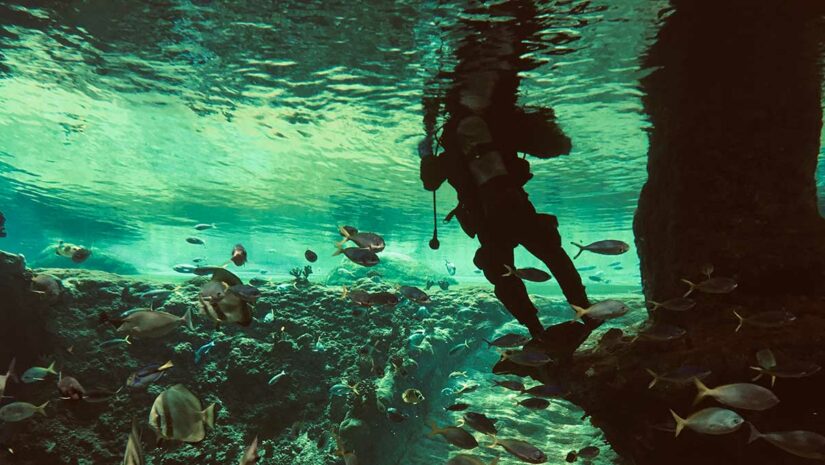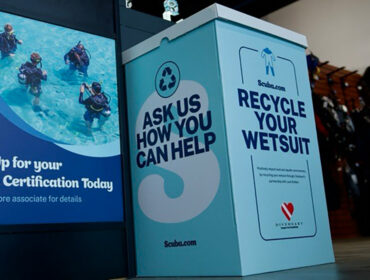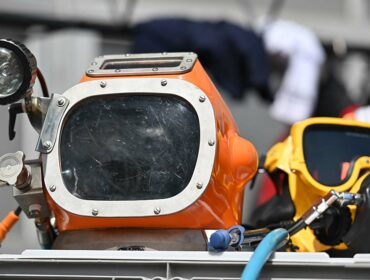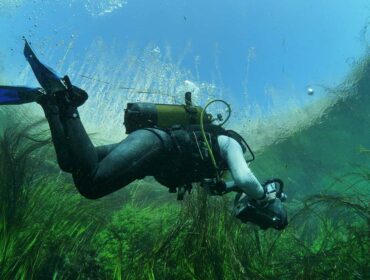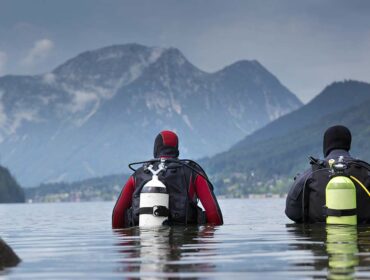For scuba divers, the ocean is a playground. It’s a world of wonder and magic, unlike anything that exists above the surface. But over time, that magical underwater world has been changing as a result of climate change, pollution, and improper behavior by divers.
Accidentally kicking the ocean floor with your fins, brushing up against coral, or touching marine life can have negative impacts on the marine environment. While it might seem negligible when one diver accidentally kicks a coral reef, if you multiply that by the 6 million active scuba divers in the world, it adds up!
As divers, we have a responsibility to care for and protect our underwater playground. We do this so that we can continue to enjoy it, as well as future generations of divers. There are many different things that we can do as divers to protect the oceans and to make our underwater adventures more sustainable.
Keep reading to learn more about what you can do both above and below the surface to become a more sustainable scuba diver!
Limit your personal plastic usage
As divers, we’re all too familiar with the threat of plastic pollution to our oceans. You can make sure that you’re not contributing to this problem by reducing your own personal plastic use and opting instead to use reusables wherever possible.
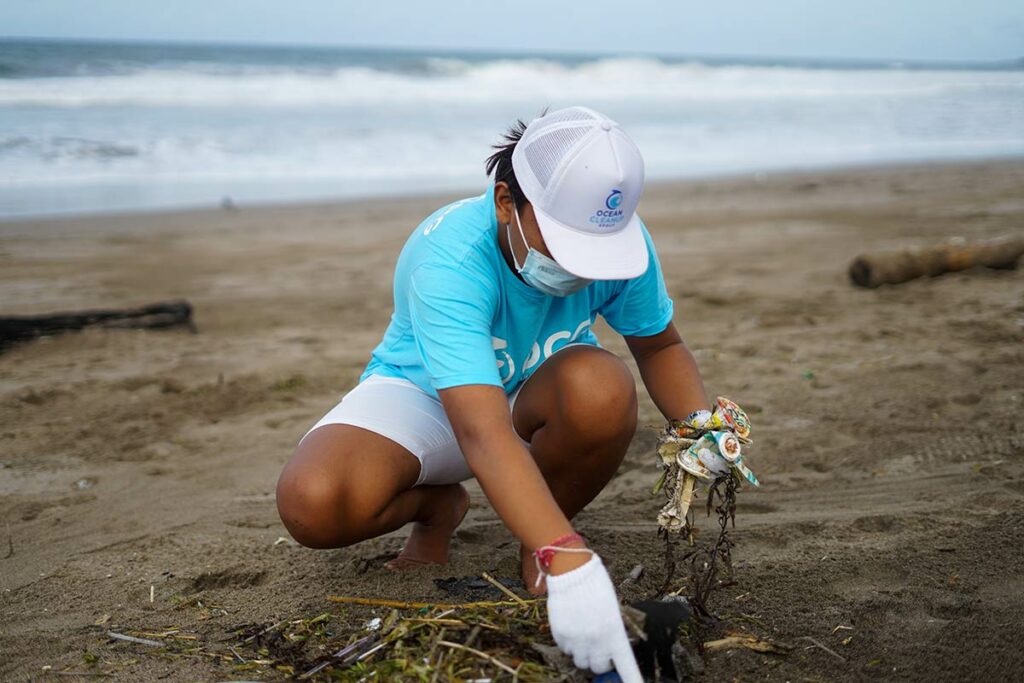
Participate in beach clean ups
While you’re minimizing plastic use in your own life, you can also be helping to clean up the plastic that’s already made its way to the sea. There are likely organizations in your local area that host beach cleanups and if there aren’t any, you can facilitate one yourself.
You can also participate in cleanups under the water. PADI and Project Aware regularly host events called “Dive Against Debris” where divers get together to collect trash during a dive. You can also “dive against debris” every time you dive by carrying a mesh bag with you. Carry a mesh bag with you on every dive.
Use reef safe sunscreen
Many sunscreens on the market today contain chemicals that are toxic to coral reefs, even at small concentrations. By switching to reef-safe sunscreen you can protect coral reefs from these harmful chemicals. When looking for reef-safe sunscreens, pay attention to the ingredients. A good reef-safe sunscreen shouldn’t have chemical UV-filters like oxybenzone, avobenzone, octisalate, homosalate, octinoxate, or octocrylene. You can also minimize your sunscreen usage overall by opting for UV-safe clothing whenever possible.
Check your buoyancy
Not only does good buoyancy make you a better diver, but it makes you a more sustainable diver. Divers with good buoyancy are in better control of their movements underwater. This means you’ll be less likely to accidentally swipe a fragile reef with a fin or kick up sediment from the ocean floor.
Dive locally to minimize your carbon footprint
Climate change has a huge impact on the oceans, causing warming and acidification. By minimizing your carbon footprint, you can help to minimize the impact of climate change on the oceans. One way to reduce your carbon footprint is by reducing the amount of flying that you do. Rather than traveling to dive in far-away locations overseas, you can explore your area and dive locally. Not only will this reduce your footprint, but it will give you a chance to learn about new, local dive sites!
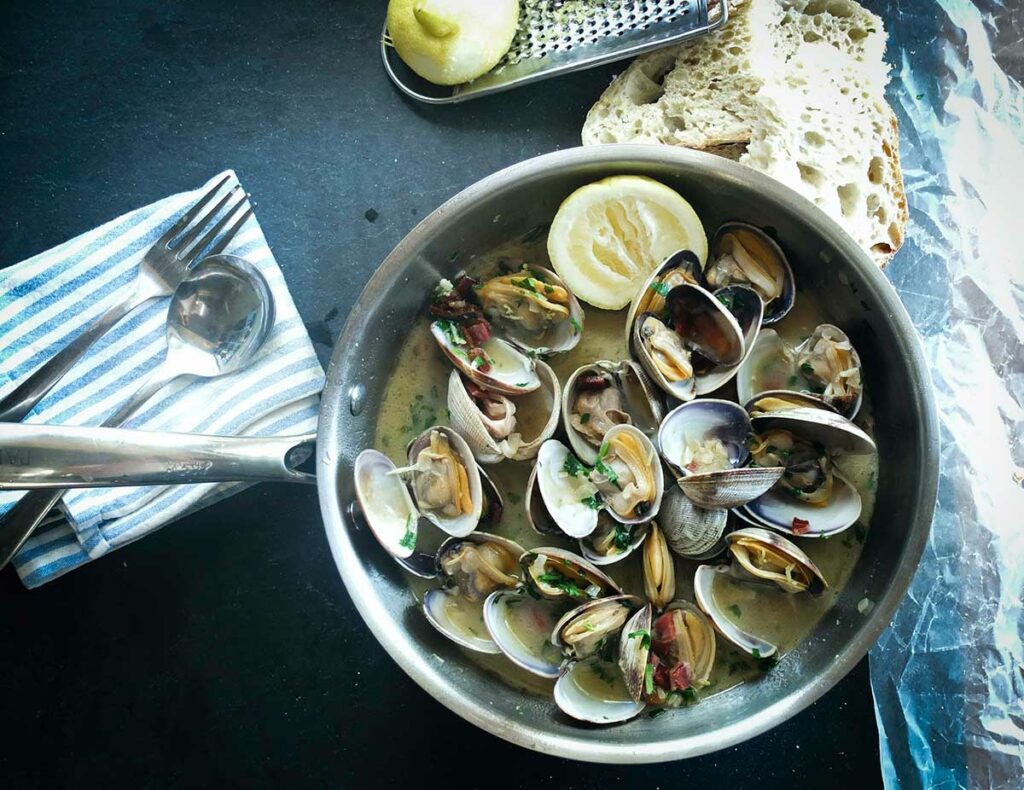
Choose sustainable seafood
You can also support healthy oceans with your food choices. Eating sustainable seafood helps to protect marine life from overfishing, while supporting coastal communities who rely on the ocean.
Pack it out
We all know that littering is wrong, but evidence that it happens is everywhere. Granted, a portion of it may be unintentional, but the worst act is to see it and just leave it there. This task may seem insurmountable, but a group effort always starts with one person. There needn’t be a special day designated to engage in this act, and every little bit is an improvement. On your next dive, pack along a bag and bring it back to the surface with some junk in it. Plastics, paper, aluminum, and glass can all be recycled, so you’re helping even more by getting these items to their proper place — which is not adrift in the sea.
Continue learning about sustainability
One of the best ways to support healthy oceans is to continue learning about healthy oceans. By staying up to date and informed on conservation issues, you’ll be better prepared to respond and act in ways that support a sustainable marine environment.
And spreading the message!
Finally, talking about ocean health is incredibly important to maintain momentum and get more divers involved in conservation efforts. You can use social media or talk to your friends and family about being a sustainable diver to help protect the ocean.
Written by Emily de Souza
Feature photo by Dominika Dela on Unsplash

